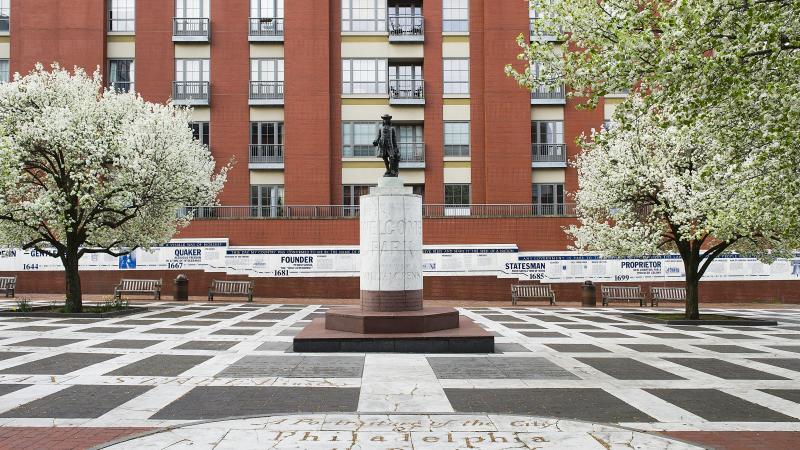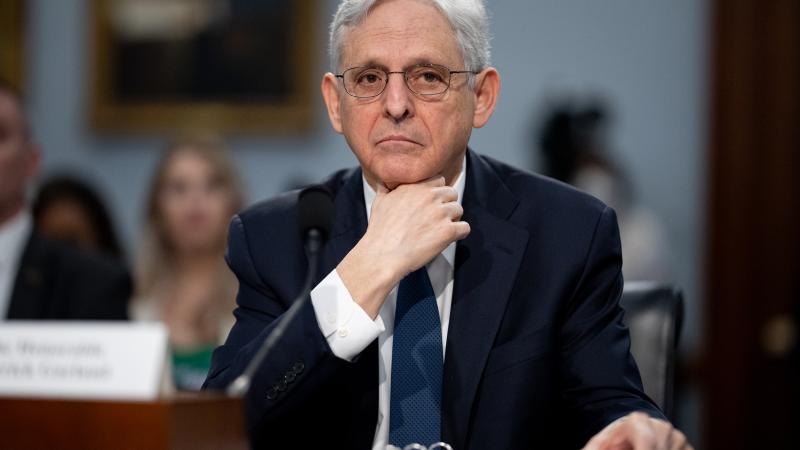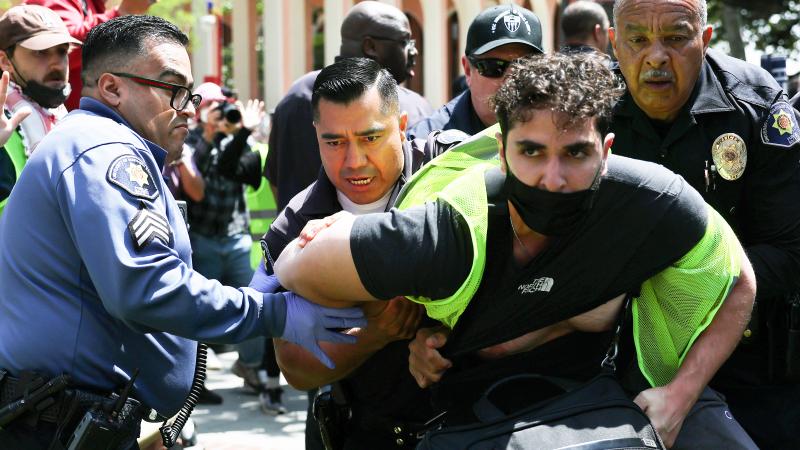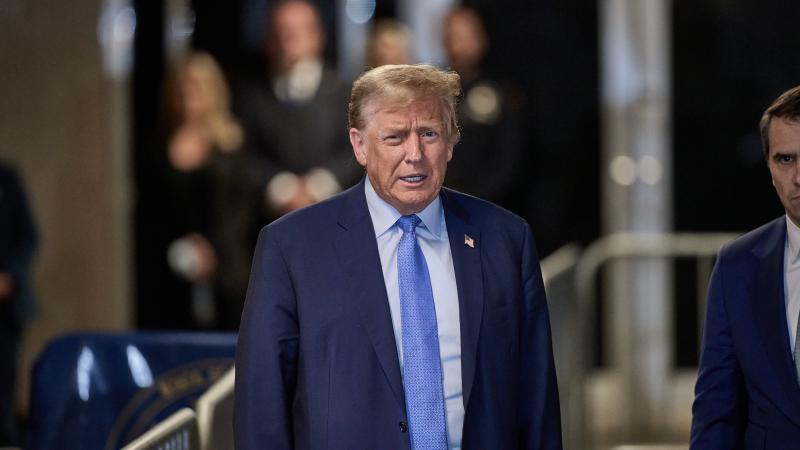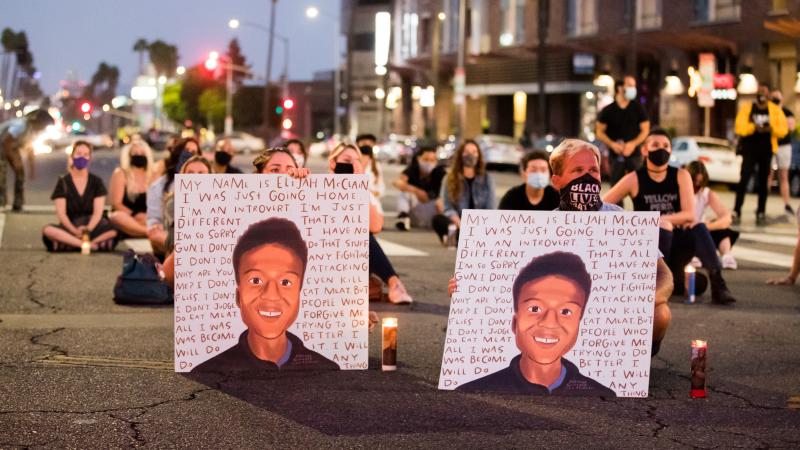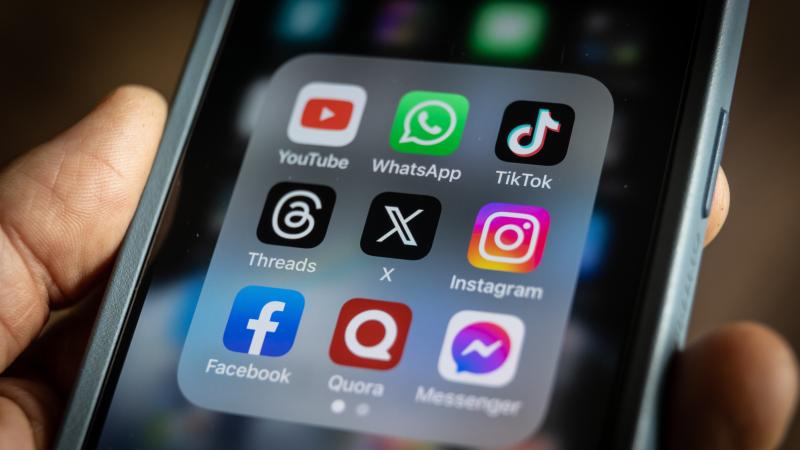Da Vinci or 'Covidiot'? Conference cancels 'iconoclastic' doctor who questions COVID catechism
"It's disturbing to see yet another scientific organization choose censorship over open discourse," academic freedom group says. Vinay Prasad's essay on COVID response as template for authoritarianism triggers establishment.
Vinay Prasad has forcefully challenged the evidence for common – and lucrative – medical procedures and treatments for the better part of a decade, developing a reputation as an "iconoclastic" researcher who throws figurative "cherry bombs," in the words of The Oregonian.
After three years of doing the same for COVID-19 – repeatedly questioning the evidence for masking, risk-benefit calculus of COVID vaccines for young men and general competence of American regulators relative to European counterparts – the University of California San Francisco epidemiologist is facing his greatest cancellation risk yet.
The American College of Clinical Pharmacy disinvited him as the keynote speaker for its annual conference next month within two days of his critics unloading on ACCP for the choice.
Prasad had been scheduled to discuss "the need for rigorous approaches to evidence-based decision-making while challenging some tenets not supported by sufficient data." The listing, posted by a critic the evening of Oct. 10, promised a "lively Q&A."
"Your voices have been heard," the ACCP Board of Regents said the morning of Oct. 12 without giving the number of voices. It disinvited Prasad after "thoughtful deliberation" while disclaiming any role in inviting him.
The board promised to review "the keynote speaker vetting and selection process to ensure alignment with the expectations and values of ACCP members," without specifying how he doesn't align. That wasn't enough for many commenters on ACCP's X announcement, who wanted answers for how Prasad got invited.
Weill Cornell Medical College immunologist John Moore told Just the News he is "delighted" about the boot to Prasad, "one of many Covidiot 'scientists' that I utterly despise" despite both being underwhelmed by the most recent COVID vaccine update.
"[I]t’s the least he deserves for his betrayal of his profession," Moore wrote in an email Friday, having previously disparaged Prasad to Just the News as a "notorious quack/crank who is, for all practical purposes, part of the anti-vaxxer infrastructure."
Prasad did not respond to Just the News queries but addressed the de-platforming on the Sensible Medicine podcast Monday, saying the organizers were "super nice" in approaching him and they agreed the topic would be "should medical evidence come with an expiration date," including for COVID therapeutics.
He said he counted "maybe 50 or 60" ACCP members online who opposed his keynote on the basis of his COVID policy views, plus "the same 20 people who didn't like me in 2017" when Prasad first rose to prominence.
He also got "dozens and dozens" of emails from people who disagreed with ACCP.
"It's not the market deciding" – ACCP members at large – but "a small, vocal minority who are dictating what can and cannot be heard," Prasad said.
ACCP does not appear to share membership numbers, but the National Academy of Medicine said ACCP had over 17,000 in 2019.
Medscape chief cardiology correspondent John Mandrola, who coauthored a paper with Prasad that questioned the value of many supposed "medical advances" and hosted the podcast, called him "one of the best medical speakers I have seen" and his dis-invitation "antithetical to science."
Even researchers with mixed views of Prasad challenged the de-platforming, which drew wider attention from Twitter Files journalist David Zweig.
"It’s almost as if slandering [Prasad] is a way to avoid addressing the massive and repeated mistakes of the CDC and FDA, especially because he exposes them," Aaron Stupple, director of the ambulatory ICU at Baystate Health, wrote on X, referring to the Centers for Disease Control and Prevention and the Food and Drug Administration.
University College London Genetics Institute Director Francois Balloux said he likes Prasad "even if I often disagree with him, and believe he's on balance a force for good." Balloux questioned "how 'cancelling him' is beneficial" rather than challenging Prasad's claims.
"They don’t want to hear evidence and actually have a debate," surgeon Gregg Schmedes, a New Mexico Republican state senator, wrote on X.
"Disinviting a speaker from a scientific conference one day after receiving vague complaints about his views," rather than organizing a Q&A session or debate panel, "is a repudiation of the values of free speech and free inquiry that drive scientific progress," Aaron Terr, director of public advocacy for the Foundation for Individual Rights and Expression, told Just the News.
"It's disturbing to see yet another scientific organization choose censorship over open discourse," he said, referring to the American Anthropological Association recently pulling a conference panel on the necessity of biological sex to anthropology.
Hematologist-oncologist Prasad made enemies of radiologists, urologists and the cancer-drug industry early in his career, according to a Stat News profile in 2017.
Prostate cancer researcher Tomasz Beer compared his polarizing reputation to Leonardo da Vinci "in the art scene of 15th century Venice," saying that Beer had fielded multiple angry calls for helping recruit the maverick to Oregon Health and Science University.
One of his cherry bombs, cited by The Oregonian, was a 2017 Lancet Haematology study that found the vast majority of prolific Twitter users in his discipline who tweeted about a drug didn't disclose a financial relationship with its maker. The median payment was $13,600.
Peter Pitts, former FDA associate commissioner, compared Prasad to the violent Antifa movement that was then roiling Portland. "He's like anti-pharm – it's the lunatic fringe of this conversation," Pitts told the newspaper in 2017.
Prasad continued to thrive as he moved to UCSF even as he made new enemies for questioning the American public health catechism on COVID in essays, academic papers, presentations and his nearly-2-year-old YouTube channel.
UCSF promoted him to full professor last year at age 39 and gave him back-to-back teaching awards, despite a controversial October 2021 essay on how "COVID19 policy shows a (potential) path to the end of America."
Prasad had laid out a hypothetical scenario under which elected officials use "a cold and flu season above average" to conjure a public health crisis and justify restrictions on information, movements and elections.
"When democratically elected systems transform into totalitarian regimes, the transition is subtle, stepwise, and involves a combination of pre-planned as well as serendipitous events," Prasad wrote in his newsletter, citing Adolf Hitler's rise in Germany.
Critics of the essay called it antisemitic, including the dean of Tufts University's Graduate School of Biomedical Sciences, who nonetheless refused de-platforming demands from faculty and students when Prasad virtually spoke there in February 2022, The Tufts Daily reported.
That essay was the only specific evidence cited by UC San Diego pharmacist Alicia Lichvar in a public letter to ACCP on Wednesday on why she was resigning as a conference speaker.
By honoring Prasad, who "continues to spread dangerous misinformation," ACCP has "spit in the faces" of healthcare workers and people "intimately impacted" by COVID, Lichvar wrote. Inviting him "legitimizes his dangerous rhetoric of questioning our public health establishments and risking the health of the community."
Lichvar took down her X account after the post with her public letter drew 1,500 likes, according to Zweig.
Another public letter against Prasad by Marian University pharmacist Brian Skinner was circulating before Skinner made it private, with no archives Just the News could find. Zweig said Skinner exaggerated a recent Prasad essay that opposes testing sick children for COVID or keeping children home if they "look good enough for school."
UCSF did not answer queries and does not appear to have defended the rising, if polarizing, star of its Department of Epidemiology and Biostatistics.
ACCP didn't answer queries about how many members complained or what they said, what specifically in Prasad's output it considers disqualifying, and if it believes UCSF promotes misinformation by having promoted Prasad.
The Facts Inside Our Reporter's Notebook
Documents
Videos
Links
- The Oregonian
- The listing, posted by a critic Tuesday night
- ACCP Board of Regents said
- ACCP's X announcement
- both being underwhelmed by the most recent COVID vaccine update
- coauthored a paper with Prasad
- "one of the best medical speakers I have seen"
- Twitter Files journalist David Zweig
- Aaron Stupple
- Francois Balloux said he likes Prasad
- wrote on X
- American Anthropological Association recently pulling a conference panel
- Stat News
- 2017 Lancet Haematology study
- questioning the American public health catechism
- nearly-2-year-old YouTube channel
- promoted him to full professor
- controversial October 2021 essay
- The Tufts Daily
- Alicia Lichvar in a public letter
- Lichvar took down her X account
- Marian University pharmacist Brian Skinner
- recent Prasad essay


